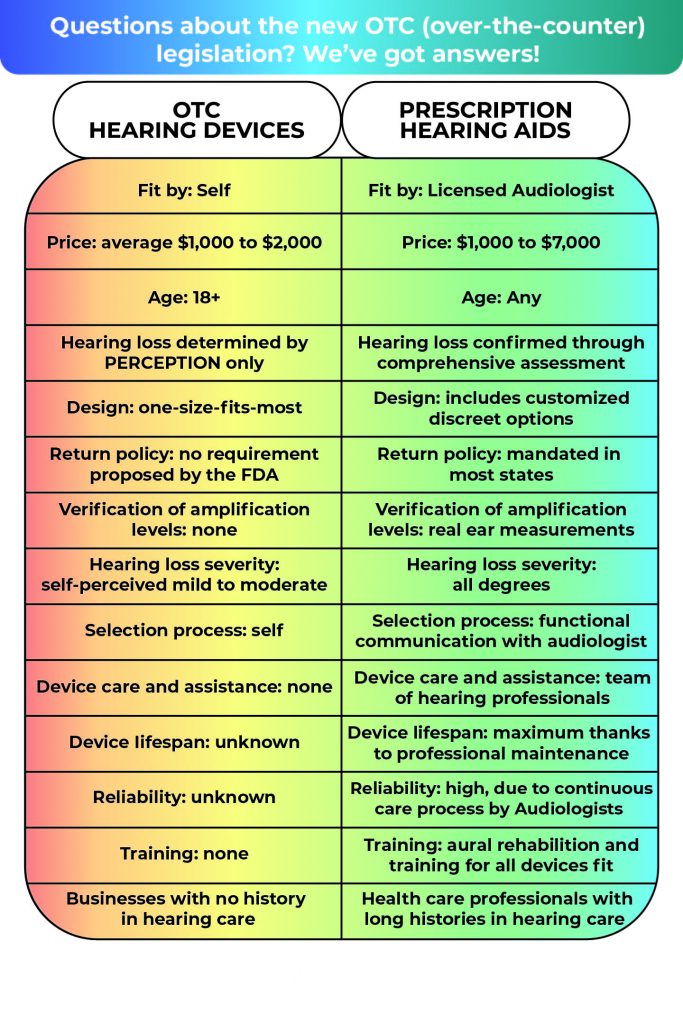In 2017, the Food and Drug Administration (FDA) released its proposal to allow certain hearing aids to be sold over the counter (OTC) without a prescription or a hearing evaluation. The purpose of the bill was to increase access and lower the costs of getting hearing help. On August 17th, 2022, the FDA released its final language, so how does this affect you?
For years, hearing aids (Class I & occasionally Class II FDA Medical Devices) were and will continue to be prescribed and professionally fit by audiologists and hearing aid dealers based on hearing evaluations, lifestyles, and many other considerations. The new FDA language will now include hearing aids to be sold over the counter.
The language that was written and approved by the FDA includes:
- Over-the-counter hearing aids are only meant for those individuals who perceive they have a mild to moderate hearing loss.
- No hearing evaluation is required.
- The purchaser must be 18 years old or older.
- Over-the-counter hearing aids can be sold outside of a medical office.
- Should not have one ear hearing better than the other (see an audiologist).
- Not for those who have a sudden change in hearing (see an audiologist).
- Not recommended for those who have tinnitus – ringing, roaring, noise (see an audiologist).
- Not recommended if someone has a history of chemotherapy and/or radiation to the head/neck (see an audiologist).
- Not for those who have active drainage from one or both ears (see an audiologist or otolaryngologist).
- Not recommended for those who have ear pain or discomfort (see an audiologist).
- Not recommended for those who have dizziness (see an audiologist).
 For many of our patients, this may be an option, however, for many this may not be a viable solution. Without a thorough audiological evaluation, any medical conditions will be missed or not monitored appropriately.
For many of our patients, this may be an option, however, for many this may not be a viable solution. Without a thorough audiological evaluation, any medical conditions will be missed or not monitored appropriately.
Ask your provider if they have vetted the over-the-counter hearing aids. They may have insights into which ones may be a better option or even if you are a candidate for OTC hearing aids. If you feel like these OTC aids aren’t providing benefits or you are still struggling, see an audiologist. We are here to professionally test and evaluate your hearing and communication difficulties. It is our job to work with patients to find appropriate solutions to reduce listening fatigue, decrease communication issues, and enhance their quality of life.
Do not hesitate to contact us for more information about these new devices, and as always, if you feel a change in your hearing, contact us for a thorough hearing evaluation.
Andi Engel, Au.D., CCC-A

